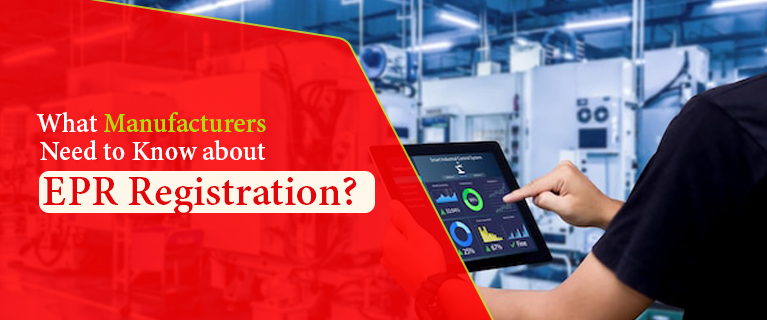How Is An EPR Certificate Beneficial For Producers?
In the pursuit of sustainable environmental practices, Extended Producer Responsibility (EPR) has emerged as a crucial concept. EPR places the onus on producers to take responsibility for the entire lifecycle of their products, including their end-of-life disposal and recycling. As a result, obtaining an EPR certificate offers numerous advantages for producers. In this blog, we will delve into the various benefits that EPR certificates bring to producers.
1. Compliance with Environmental Regulations
One of the primary benefits of obtaining an EPR certificate is that it ensures compliance with environmental regulations. Governments around the world are increasingly implementing EPR policies to address the challenges of waste management and environmental pollution. By obtaining an EPR certificate, producers demonstrate their commitment to fulfilling their environmental responsibilities and avoiding potential fines or penalties for non-compliance.
2. Strengthening Corporate Social Responsibility (CSR)
EPR certificates align with a producer's Corporate Social Responsibility (CSR) initiatives. Being environmentally responsible is becoming an essential aspect of a company's image. An EPR certificate highlights a producer's dedication to sustainable practices and reflects positively on their brand reputation, leading to increased customer loyalty and trust.
3. Enhancing Brand Image
Producers with EPR certificates earn a reputation for being environmentally conscious and socially responsible. Such an image can significantly influence consumer decisions, as eco-conscious customers are more likely to choose products from environmentally responsible companies. A positive brand image boosts sales and customer loyalty, fostering long-term business growth.
4. Access to Green Markets
EPR certificates open doors to green markets and environmentally-conscious consumers. Many retailers and government institutions prefer to partner with producers who have EPR certificates as they are committed to sustainable practices. This access to green markets can lead to new business opportunities and expansion for the certified producers.
5. Efficient Waste Management
By obtaining an EPR certificate, producers are compelled to adopt efficient waste management practices. This includes establishing proper waste collection, sorting, recycling, and disposal processes. Efficient waste management not only minimizes the environmental impact but also ensures optimal utilization of resources, leading to cost savings for the producers.
6. Contribution to Circular Economy
EPR certificates play a crucial role in promoting the circular economy. Producers are incentivized to design products with recycling and reuse in mind, extending the lifespan of materials and reducing waste generation. By contributing to the circular economy, producers actively participate in the conservation of resources and reduction of environmental pollution.
7. Encouraging Innovation
EPR certificates encourage innovation in product design and packaging. Producers strive to create products that are easily recyclable, repairable, or reusable, thus reducing the burden on landfills and contributing to a sustainable future. This drive for innovation can lead to the development of more eco-friendly and sustainable products.
Read Also This - The Global Popularity of EPR RegistrationConclusion
In conclusion, the benefits of obtaining an EPR certificate are manifold for producers. Compliance with environmental regulations, strengthening CSR initiatives, enhancing brand image, and gaining access to green markets are just a few advantages that come with EPR certification. Moreover, efficient waste management, contribution to the circular economy, and the encouragement of innovation further underscore the significance of EPR certificates for producers. As the global focus on environmental sustainability intensifies, EPR certification has become a powerful tool for producers to demonstrate their commitment to environmental conservation and secure a competitive advantage in the market. Embracing the benefits of EPR certificates not only benefits producers but also contributes to a cleaner and greener future for all.




Comments
Post a Comment